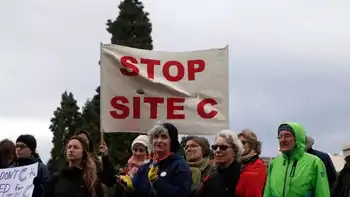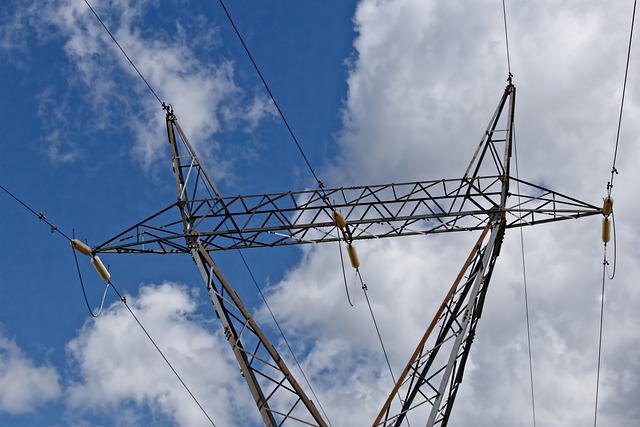British Energy to crack down on inefficiencies
- British Energy is bringing in a crack team of 120 consultants to rid its eight UK nuclear power plants of inefficiencies including Hunterston and Torness in Scotland.
The company has also stressed in meetings with staff that the quoted nuclear generator will remain Scottish, with a slimmed-down 60-strong head office based at new premises somewhere in central Scotland.
Mike Alexander, chief executive, said the company has appointed four consultants - Ove Arup, Entergy, Rossmore, and Seven Trent - to improve efficiency at the nuclear generator.
The consultants will work at the company for two years in a bid to improve operational efficiencies and cut down the number of times British Energy's eight nuclear plants are taken out of action.
Alexander said delays were currently caused by a lack of co- ordination between different teams working on the plants which led to slippages in the maintenance programmes. He said: "Our planning is poor and our work takes longer to do. We have to get the climate and the culture more acceptable to change."
Typically, British Energy will deploy 10 to 15 consultants per plant to work with every plant's 60-strong management team.
If there was not an improvement after two years then the consultants would not get a bonus. Alexander said:
"They are not time and motion people. They have to get a percentage improvement,"
He has created a new role - a technical oversight director - to oversee these improvements. British Energy has identified two candidates - both from America - and an appointment will be made in the next few weeks.
Alexander stressed that he was not critical of the workers at the plants.
"They have individual pride," he said. "But they are frustrated that things are not clicking. The issue is about culture."
The former Centrica chief operating officer has set the plants a target of improving their in-service record or "rated capacity" by 10% to 88%. British Energy has never averaged 88% before, although at least one plant has hit that figure.
He said that this improvement would boost total output, currently running at 67 terra watt hours (TWh), by seven TWh - the equivalent of about (pounds) 105m of profits because each TWh is worth (pounds) 15m after costs.
Alexander said that his focus was on the government's next regulatory review, due after 2006. He said: "We need it to be in shape by then."
The chief executive is also planning to improve the company's financial position by increasing the number of traders in Gloucester by about a third to 50. These traders sell forward power prices into the market to try to get a better deal for British Energy.
Turning to the company's commitment to Scotland, Alexander stressed that British Energy would continue to be Scottish, despite well-publicised plans to cut head count at its East Kilbride headquarters and lay off some of the staff.
Around 150 engineers out of the 360 staff at East Kil- bride are being transferred to join the 900 other engineers in British Energy's Gloucester offices.
Out of the remaining 210 posts, 70 are losing their jobs, 40 back office staff will be relocated to a smaller office in East Kilbride, and 30 workers from the electrical and engineering team will be accommodated either in Scotland or Gloucester.
This team was relocated by British Energy to Scotland two years ago, and Alexander believes it would be unfair to force them to move again. He is waiting for the team to make a decision about where it wants to work.
He said that job losses were inevitable because most of the large international nuclear operation which the company's headquarters was geared up to run has now been sold off.
He said: "(The head office) is at least twice overstaffed. As a UK nuclear generator, it needs to be thin, sleek, and crisp."
The changes leave a rump of 60 staff who will move to a new headquarters building in Scotland. Alexander said that these 60 were the core of British Energy and had to be kept together. "I can't break up the heart of the company," he said.
The chief executive believes that British Energy deserves a chance after winning approval from its creditors for a (pounds) 4bn government bail-out, which has left shareholders with just 2.5% of the company.
Alexander is a veteran of British Gas, where he helped to turn the former nationalised utility into a commercial operation. He left Centrica - British Gas's new name - in April to join British Energy on the same salary.
He said he was attracted by the challenge because British Energy's problem was that it had never properly prepared itself for the commercial market. "It is a great company but it has screwed up," he said.
Related News

Site C dam could still be cancelled at '11th hour' if First Nations successful in court
VANCOUVER - The Site C dam could still be stopped by an "eleventh hour" court ruling, according to the lawyer representing B.C. First Nations opposed to the massive hydroelectric project near Fort St. John.
The B.C. government, BC Hydro and West Moberly and Prophet River First Nations were in B.C. Supreme Court Feb. 28 to set a 120-day trial, expected to begin in March 2022.
That date means a ruling would come prior to the scheduled flooding of the dam's reservoir area in 2023 said Tim Thielmann, legal counsel for the West Moberly First Nation.
"The court has left itself the opportunity for…




